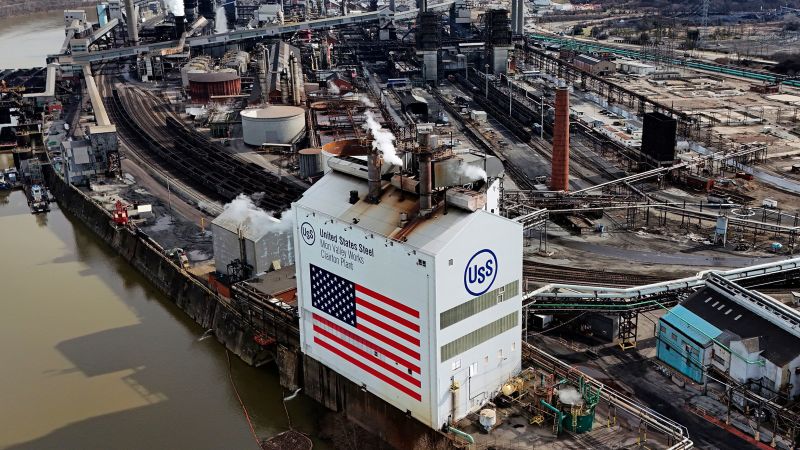
President Joe Biden plans to announce as soon as Friday that he is blocking a $14.3 billion of US Steel by Japan’s Nippon Steel, according to published reports in the Washington Post and New York Times , which cited administration officials. The move would not be a surprise but could have implications for future foreign investment in American companies.
Biden has been on record opposing the deal, which was announced a year ago. President-elect Donald Trump also said he opposes the deal and that he also would block it once he takes office. The deal has been politically charged since it was announced in December of 2023 , stirring bipartisan political opposition to foreign control of a once key component of US industrial might which has fallen on hard times.

Blocking the deal could be politically popular domestically but could scare away foreign investment in other US companies. It could also starve US Steel of investment it says it needs. Late last month, the Committee for Foreign Investment in the United States, known colloquially as CFIUS, notified Biden that it had not reached a consensus about whether or not US Steel’s sale to Nippon would pose a national security risk, leaving the decision up to the president to determine whether or not to block the deal on national security grounds.
“It is important that we maintain strong American steel companies powered by American steel workers. I told our steel workers I have their backs, and I meant it,” Biden said in a statement in March , when he was still seeking re-election. “US Steel has been an iconic American steel company for more than a century, and it is vital for it to remain an American steel company that is domestically owned and operated.
” The United Steelworkers union has strongly opposed the deal since the moment it was announced, arguing that Nippon has not given it sufficient guarantees that it would protect unionized jobs at some of the company’s older mills staffed by union members. But Biden’s opposition to the deal may not be the final say: Nippon and US Steel have vowed to fight to win approval of the deal in court even if the Biden or incoming Trump administration tries to block it. US Steel and Nippon argue the deal is necessary to provide needed investment in the US Steel’s domestic steel operations.
US Steel has claimed it could be forced to shut down the mills represented by the USW if it doesn’t get the $2.7 billion in investment planned by Nippon Steel as part of its proposed $14.3 billion purchase The proposed purchase was bound to be unpopular.
US Steel was once a symbol of American industrial might . It was the most valuable company in the world and the first to be worth $1 billion soon after its creation in 1901. It was also crucial to the US economy and the cars, appliances, bridges and skyscrapers that tangibly indicated that strength.
But it has suffered through decades of decline since its post-World War II height. It is no longer even the largest US steelmaker, and a relatively minor employer, with 14,000 US employees – 11,000 of whom are USW members. But it is still not a company that politicians who enjoy talking about the American greatness want to see fall into foreign hands – particularly in the politically significant state of Pennsylvania.
Demonstrating that blocking the deal appears political in nature, Trump opposed Nippon’s purchase of US Steel, but recently welcomed a $100 billion investment from Japan’s Softbank , including funds for investment in US artificial intelligence technology – arguably far more important for national security. If US Steel’s purchase by a Japanese company poses a national security threat, some foreign investors may think twice about spending resources on mergers and acquisitions or investments in American companies. Shares in US Steel ( X ) were down by more than 8% in pre-market trade on Friday.
CNN’s Anna Cooban contributed to this story. This is a developing story and will be updated..















